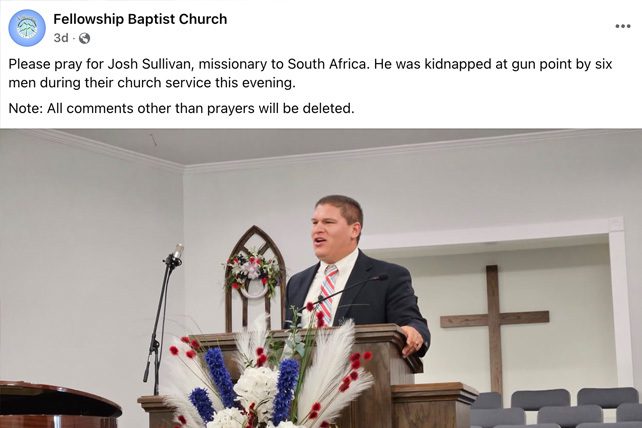In his presidential message for Holy Week, Donald Trump shared his hope for God to “bless you and your family during this special time of year” and to “bless the United States of America.” The message has sparked debate among Americans, with some comparing Trump’s words with his actions as president.
“This Holy Week, Melania and I join in prayer with Christians celebrating the crucifixion and resurrection of our Lord and Savior, Jesus Christ—the living Son of God who conquered death, freed us from sin, and unlocked the gates of Heaven for all of humanity,” the message began.
President Trump Calls America a ‘Beacon of Hope, Faith, and Freedom’ This Holy Week
Trump’s presidential message included a summary of the Holy Week events—from “Christ’s triumphal entry into Jerusalem on Palm Sunday” to Jesus’ “miraculous Resurrection from the dead.”
Trump admitted that “the glory of Easter Sunday cannot come without the sacrifice Jesus Christ made on the cross.”
It’s been two years since Trump entered the courtroom after being charged with 34 felony counts of falsifying business records. At the time, Marjorie Taylor Greene compared Trump’s indictment to the betrayal and arrest of Jesus Christ. “Jesus was arrested and murdered by the Roman government…It’s beginning today in New York City. I’ll always support [Trump]. He’s done nothing wrong,” Greene said at the time.
Trump was found guilty of all 34 felony counts.
During Holy Week last year, then-presidential candidate Trump compared himself to Jesus Christ as he promoted the “God Bless the USA Bible,” a Bible bound with America’s founding documents.
“It’s ironic that Christ walked through His greatest persecution the very week they are trying to steal your property from you,” Trump quoted from a message he said he received from a Christian ally. “But have you seen this verse?,” he continued, quoting Psalm 109:3-8. “They have also surrounded me with words of hatred and fought against me without a cause…”
The 2025 presidential message said, “In His final hours on Earth, Christ willingly endured excruciating pain, torture, and execution on the cross out of a deep and abiding love for all His creation. Through His suffering, we have redemption.” The message said that “light prevails over darkness” while mentioning the hope found through Christ’s resurrection.
Trump said, “This Holy Week, my Administration renews its promise to defend the Christian faith in our schools, military, workplaces, hospitals, and halls of government.” He continued, “We will never waver in safeguarding the right to religious liberty, upholding the dignity of life, and protecting God in our public square.”
In response to Trump’s message, Rev. Benjamin Cremer argued, “Claiming that America is a ‘Christian nation’ while actively creating legislation that directly harms the very people Jesus called us to serve—namely the poor, the sick, the hungry, the immigrant, and the marginalized—is the height of both religious and political hypocrisy.”
✝️”This Holy Week, Melania and I join in prayer with Christians celebrating the crucifixion and resurrection of our Lord and Savior, Jesus Christ—the living Son of God who conquered death, freed us from sin, and unlocked the gates of Heaven for all of humanity.” –President Trump pic.twitter.com/WdW2kRDi4p
— The White House (@WhiteHouse) April 13, 2025



















 Grief is something all pastors will encounter, both in their own lives and in the lives of their congregation. It’s a part of the human experience, but knowing how to navigate it well—both personally and pastorally—is crucial. This article will explore how to understand grief, what to expect, and how you can be a source of support to those who are grieving, all from a biblical and neuroscience-informed perspective.
Grief is something all pastors will encounter, both in their own lives and in the lives of their congregation. It’s a part of the human experience, but knowing how to navigate it well—both personally and pastorally—is crucial. This article will explore how to understand grief, what to expect, and how you can be a source of support to those who are grieving, all from a biblical and neuroscience-informed perspective.








